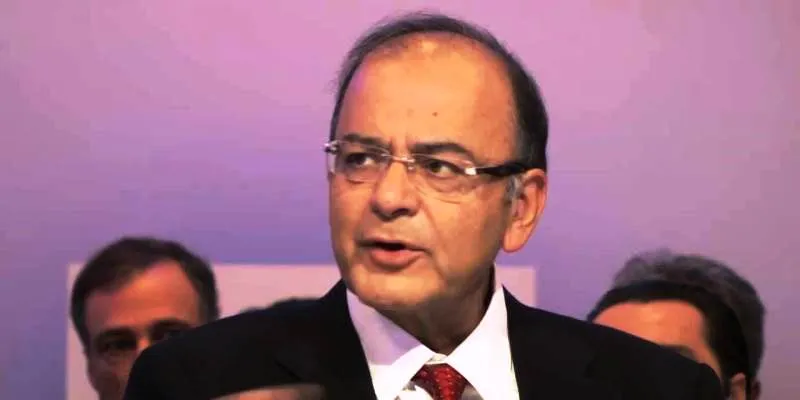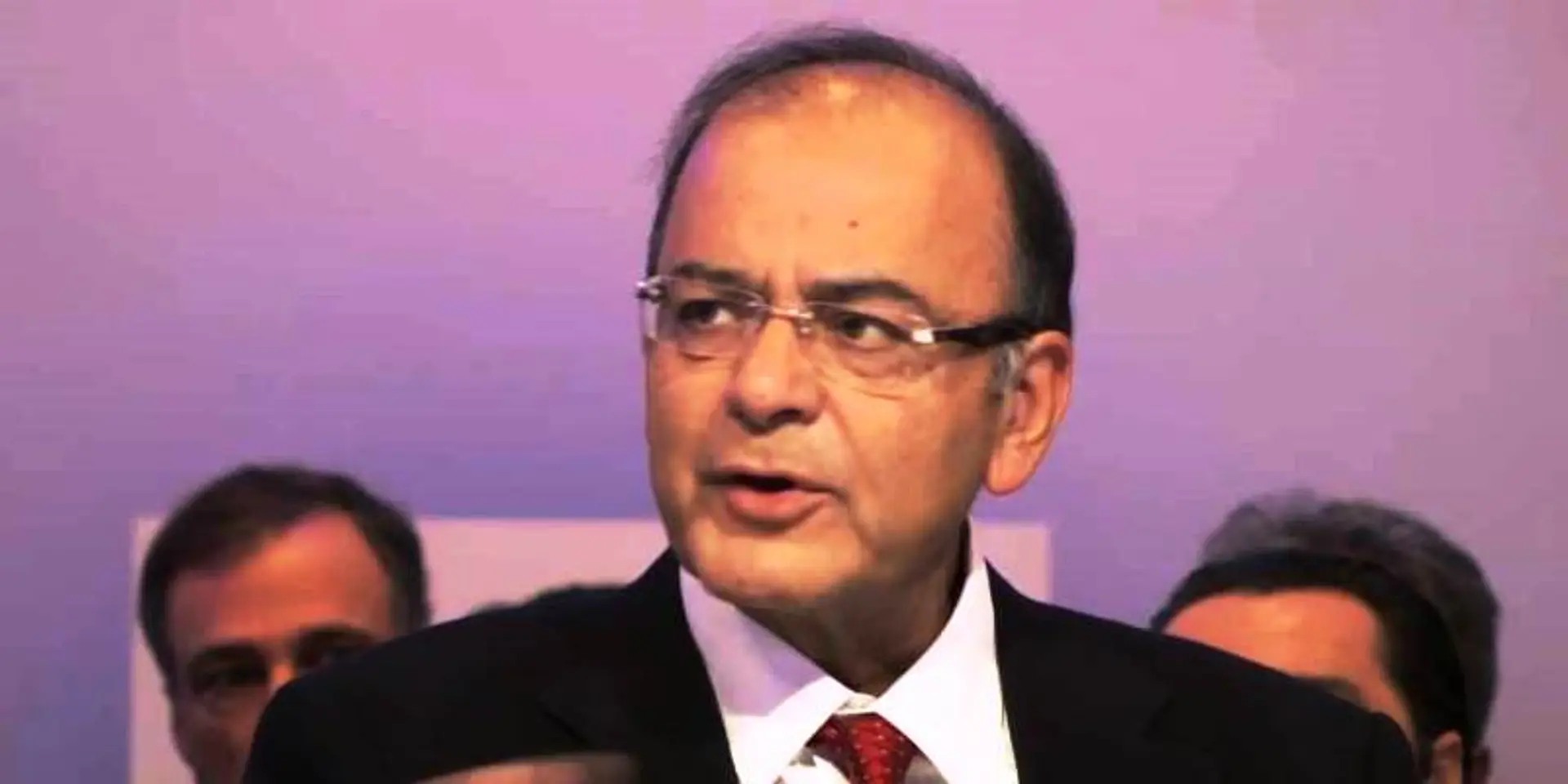GST bill taken up in Rajya Sabha, most parties support except AIADMK
Main opposition Congress and most other parties, except AIADMK, today expressed support, with certain conditions, to the introduction of GST in the country as the Rajya Sabha took up the much-delayed bill to amend the Constitution for allowing the measure.

Moving the Constitution (122nd Amendment) Bill, 2014 amid thumping of desks by the entire House, Finance Minister Arun Jaitley said it was one of the most significant tax reforms in India in recent history that has been brought after a "broad consensus" with various political parties. The bill was supported by Congress and most of the other parties like Samajwadi Party, JD(U) and Trinamool Congress. AIADMK, however, opposed the move. While commending the bill for consideration, Jaitley said,
I am sure the enactment of GST will bring about the best economic management in its federal form
He said legislation was being enacted in the best possible way in the Indian federalism. He said there was a need for a political consensus as far as possible to bring this bill and a process of dialogue with all major political parties and states was undertaken and the "best possible output was incorporated in the bill".
A legislation of this kind cannot be made on the basis of a partisan approach. It impacts on the Centre and states and we have systematically worked towards a political consensus. There is as far a consensus as possible if not unanimity as far as language and contents of the bill are concerned, the Minister said.
Jaitley said,
the merits of the system are that it will convert India into one economic market and will introduce a uniform tax across the country, check evasion of tax. This would also give a boost as far as growth rate is concerned.
Speaking on behalf of Congress, former Finance Minister P Chidambaram said his party supports "idea" of GST as well as the bill, which he noted had been improved after the government held talks with various parties, including his.
The Congress party was never against the idea of GST. The country is now ready to embrace the GST," he said, adding his party had opposed the 2014 bill but not the 'idea'. We wanted it (bill) to be more perfect. But there can never be a perfect bill, he said.
Spelling out the problems his party had with the bill, he said Congress wanted a cap of 18 per cent on the tax rate under GST, scrapping of 1 per cent retrogade tax besides setting up of disputes redressal mechanism for resolving issues arising out of tax disputes between states.
The government was (initially) rather stubborn. I, on behalf of my party, loudly and clearly wanted that the tax should be not more than 18 per cent...Taxation is the exclusive power of Parliament, we can give some leverage to the Executive, but it should remain the domain of Parliament. I want an assurance from the Finance Minister that when the GST Bill is brought, it will brought as a financial bill and not as a money bill. This is far too transformational and important legislation that one House of Parliament should just speak on it and the other will vote. We want that both Houses should debate and vote on it, he said.
Naresh Agrawal of Samajwadi Party said despite not wanting, his party is supporting the Bill because they do not want to be blamed for being an obstruction in the country's progress. Taking a dig at the NDA, he said it was their "smartness" that every time they bring out a Bill, the feeling given out was as if they are going to bring about a huge turnaround in the country.
But what happened to your old Bills. What about black money, Agrawal asked.
Alleging that the government's intention is "bad" and to raise taxes, he said,
You are saying that we don't want inflation in the country. Then why not set a low rate such as 18 per cent now itself?
He also asked the government not to make the GST Bill a Money Billand also pointed out that while Centre has kept two-thirds vote of states in GST council, decision is by three-fourths.
So, the Centre's veto stays. When state GST law comes, if state imposes extra tax, say, on tobacco, will you be able to stop it? Small traders are opposing GST. We have demanded that traders with up to Rs 10 lakh turnover be excluded from GST, he said.
He also wondered if GST of food products will also be there, which in turn will lead to price rise.
Navaneetha Krishnan (AIADMK) opposed the Bill, saying
This constitutional amendment Bill is not valid. It violates the states' fiscal autonomy. It will give permanent revenue loss to Tamil Nadu. We oppose it.
Noting that federalism is the basic feature of constitution, he said the Bill violates federalism.
It also violates Article 21 of the Constitution. This Parliament has no competence to bring this Bill violative of federalism, he said.
Arguing that Tamil Nadu is a manufacturing state, he said the state will lose substantial revenue.
GST method of levying tax is destination-based, not origin-based. So we strongly oppose it. We will lose Rs 9,270 crore. This is not a small loss. Even after 5 years, centre should compensate states for any loss, he said.
Accusing the government of bringing GST to favour the corporates, Chidambaram said his party Congress had to speak for the common people, who were the "third factor" besides the Centre and states, that would be affected by taxes. Thus the rate of 18 pc tax was the most acceptable given the economic situation of the country, he said.
In the name of people, standard rate should be capped at 18 per cent, the Congress leader said, adding he does not buy the argument that by keeping the rate at 18 per cent, the states will lose revenue.
Let me go on record that it is hugely inflationary and will lead to a backlash if you jack up the Service Tax rate from the current 14.5 per cent to around 23 or 24 per cent, he said.
Also read : GST Bill amendments circulated, to drop 1pc additional tax before Rajya Sabha takes it up tomorrow
Chidambaram said indirect taxes, being regressive in nature, are kept at minimum the world over and it ranges from 14.1 per cent in emerging economies like India to a maximum of 16.8 per cent in developed countries. The former Finance Minister said the rate of tax must be changed by the approval of Parliament and not by the Executive.
When we say cap the taxe rate, we are saying that it cannot be changed by the whims of the Executive. A rate must only be changed by Parliament approval. It cannot and ought not be changed at the whims of the executive. People of India want lower tax rate, he said.
Earlier Jaitley said the bill is guided by two main principles that rate of tax should gradually come down so that it is more citizen-friendly and also that tax should be adequate enough so as to generate enough revenue to states.







